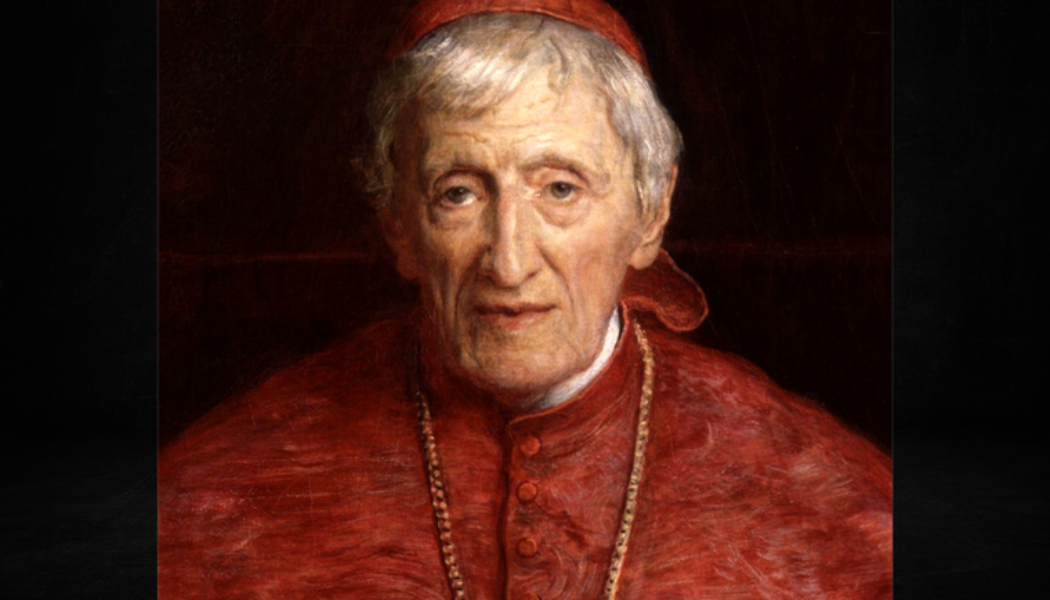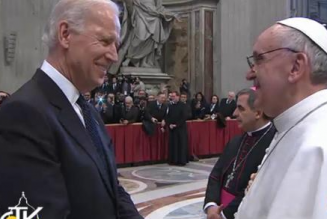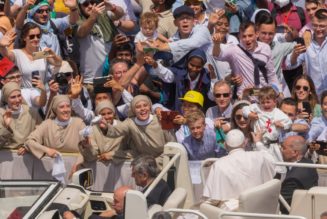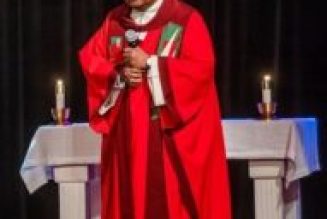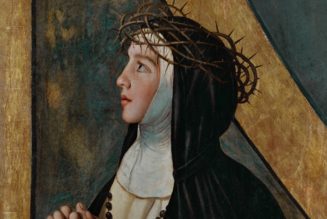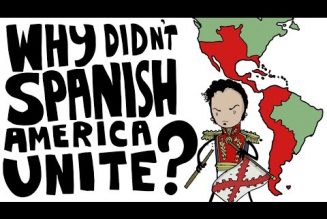
St. John Henry Newman’s name was oft taken in vain during the recent Synod on Synodality for a synodal Church. Thankfully, the American bishops showed it due reverence at their recent meeting in Baltimore, voting in favor of Newman being declared a doctor of the Church.
“There was a figure who was floating around in the synod and who wasn’t really named, and it was Cardinal Newman,” said Archbishop Timothy Costelloe of Perth, Australia, one of the nine “president-delegates” of the planetary phase of the synodal process in Rome. “This whole idea of the development of doctrine is really key to us moving forward.”
Perhaps Archbishop Costelloe wasn’t listening but Cardinal Newman was invoked frequently.
Throughout the long synodal process, whenever a divergence from Catholic teaching was proposed, Newman’s name was surely to be invoked in the manner of an ancient superstition. Thrice around the circular tables chanting “development of doctrine” and all manner of novel distortions could be entertained.
In actuality, however, Newman is too catholic — and Catholic — a thinker to be deployed for such ideological purposes. That’s evident from a sermon he preached in 1873 that is growing more relevant today. He would little recognize this synodal process, seemingly locked in the framework of present fashions, as a “development of doctrine.” It was not so much a “going forward” as a looking around to see against which worldly criteria the faith could be measured. Newman instead would have recognized in Rome today something he warned of 150 years ago in one of his most famous sermons, “The Infidelity of the Future.”
“The Infidelity of the Future” is one of Newman’s most well-remembered sermons, preached on the occasion of the dedication of a new seminary. Far from the garrulous self-congratulation that marked the self-referential synodal process, Cardinal Newman shocked his hearers with a farsighted look at the perils to come. The most frequently quoted passage of Newman’s sermon is the foretelling of the sexual-abuse scandals, in words that could have been written the day before yesterday:
“No large body can be free from scandals from the misconduct of its members. … With a whole population able to read, with cheap newspapers day by day conveying the news of every court, great and small to every home or even cottage, it is plain that we are at the mercy of even one unworthy member or false brother. … There is an immense store of curiosity directed upon [Catholics] in this country, and in great measure an unkind, a malicious curiosity. If there ever was a time when one priest will be a spectacle to men and angels it is in the age now opening upon us.” (3)
Yet the “infidelity” of the title is not being “unfaithful” to the promises of celibacy, or marriage vows, for that matter. By “infidelity” St. John Henry means a coming age of “unbelief.” A new world was emerging, in which only that which could be measured, demonstrated by the scientific method, was true. The entirety of divine Revelation was then called into question.
Ancient times were not without religion; perhaps they had too much, with the various and multiplying deities. The future of which Cardinal Newman warned had no room for God, or even gods, at all, and this was something new.
“There is no revelation from above. There is no exercise of faith. Seeing and proving is the only ground for believing. They go on to say, that since proof admits of degrees, a demonstration can hardly be had except in mathematics; we never can have simple knowledge; truths are only probably such. So that faith is a mistake in two ways. First, because it usurps the place of reason, and secondly because it implies an absolute assent to doctrines, and is dogmatic, which absolute assent is irrational. Accordingly you will find, certainly in the future, nay more, even now, even now, that the writers and thinkers of the day do not even believe there is a God.” (6)
This kind of “probable faith” was on ready display during the synod, where settled teaching seemed never really settled, given that all matters admit of probability and change outside of mathematical demonstrations. Anything can be unsettled if so desired. Dominican Father Timothy Radcliffe, who preached to the synod participants before the event got underway, has long been the unsettling sort.
“Christianity has never yet had experience of a world simply irreligious,” Cardinal Newman preached about the new secular order encroaching. All the current talk about the “nones” is fulfilment of St. John Henry’s prophecy. And the challenge of evangelizing them is formidable, as it has not been done before on a mass scale.
“Brethren, you are coming into a world, if present appearances do not deceive, such as priests never came into before, that is, so far forth as you do go into it, so far as you go beyond your flocks, and so far as those flocks may be in great danger as under the influence of the prevailing epidemic,” Newman preached. Not only is evangelizing the “nones” difficult, but their pull upon the believers is powerful.
As to the remedy, Cardinal Newman highlighted the role of the seminary in teaching the faith.
“In the same warfare [most important] is a sound, accurate, complete knowledge of Catholic theology,” he said. “This, though it is not controversial, is the best weapon (after a good life) in controversy. Any child, well instructed in the catechism, is, without intending it, a real missioner.”
St. John Henry thus drew a line from knowledge of the faith to missionary discipleship. Even the child secure in the faith is attractive to others “because the world is full of doubtings and uncertainty, and of inconsistent doctrine.”
“A clear consistent idea of revealed truth, on the contrary, cannot be found outside of the Catholic Church,” he concluded. “Consistency, completeness, is a persuasive argument for a system being true. Certainly if it be inconsistent, it is not truth.” Inconsistency was not alien to the synodal process.
Cardinal Newman came to his views — and to his conversion to the Catholic faith — after drawing deeply from the wells of Catholic tradition, confident that answers could be found to the questions which haunted an age of increasing unbelief. In contrast, the theological depth manifest at the planetary phase of the synodal process was simply shallow, and rapidly evaporating, at that. The synodal process would do better to study Cardinal Newman, rather than reduce him to a slogan.
“Dr. Newman,” in the English manner of address, was how John Henry Newman was known for much of his life. After his canonization in 2019, the bishops of England petitioned the Holy See to have him declared a doctor of the Church — a rare honor given to those saints exemplary for their theological works. There are fewer than 40 of them, including such lights as Athanasius, Ambrose, Augustine, Anselm, Albert and Aquinas.
At their November meeting in Baltimore, the American bishops voted to support the English petition. The matter might indeed be urgent, if only to correct the false purposes to which St. John Henry Newman is being put.
